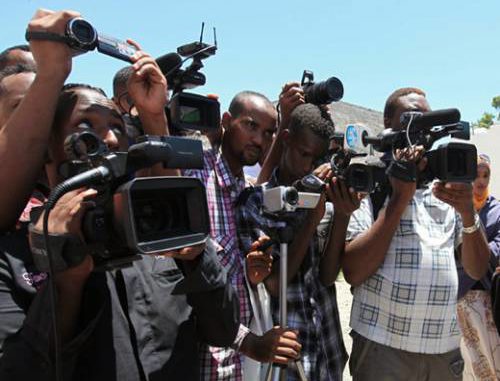
“The crux is not the publisher’s freedom to print; it is rather, the citizen’s right to know” – Arthur Hays Sulzberger, 1956
Equal-time rule is the act giving equal opportunity to legally qualified political candidates when it comes to selling or giving away air time during the election by media outfits and for this reason, the media role cannot be overlooked in our political life.
Its practitioners in most cases serve as determinants of election results based on their stories before, during and after electioneering processes.
The media painted the candidate of the People’s Democratic Party (PDP), Ademola Adeleke in the last Osun governorship election as “dullard” and the dancing senator was seen as one. It painted President Goodluck Jonathan administration as tenure filled with lots of irregularities and the general public accepted. The same media has shown to us that Buhari’s fight against corruption is a joke.
In the real sense, the writers of the newspaper have a great chance of being used to determine tomorrow with what they feed the public about candidates’ ideas and answers to the problem of over 190 million Nigerians.
This is the time where all parties are most visible in media by coverage of never-ending barrage of sensational scandal – be they real, fabricated or exaggerated especially through social platforms. The sad thing here is that the mainstream media have come to so much trust contents from Twitter and Facebook feeds without verification.
Ralph Keyes in 2004 noticed that “deception has become a defining characteristic of modern life, and is so pervasive that people are desensitized to its implications.”
The American author expressed his displeasure over claims short of truth by politicians and get reported by media outfits. This is a norm in Nigeria where press organization that should serve as watchdogs are used as politicians’ mouthpiece (s) publishing political parties and their candidates talks even when their speeches are questionable.
Some scholars maintain the media playing the role of PR for political parties will unarguably affect the objectivity of journalists who view a government job as the source of their next meal (Shepard, 1997).
Over 70 candidates will be on the ballot paper contesting to be the president of Nigeria in 2019 and it is important that the media play its role seriously to shape public opinion.
The repeat of “Verdict 83” election programme on the Nigerian Television Authority (NTA), which led to a lot of condemnation for its highly partisan coverage of the 1983 elections of the then incumbent, National Party of Nigeria (NPN) government should be avoided.
Media have the obligation to be truthful, to be fair, not bias in their coverage and also provide the platform for all parties including debates chances.
The media should expose irregularities of parties backed by richer members of society to the detriment of the poorer parties and make sure that campaign publicity hired on different outlets are not unethical in order to avoid defamation and hate speech. And in the case of defamation, media outlets regardless of who their proprietors are must give room to affected candidates to correct all form of defamation.
While the media must provide equitable news coverage of political party campaign activities of all parties and stop the commercialization of political news for it is not just unprofessional but unethical, it must also advocate for societal peace as a major expectation from a democratic media system.
As reasonable Fourth Estate of the Realm, the media must ahead of 2019 prevent retrogressive reports in the country’s political existence.
To achieve a peaceful and hitch free election, the media must ask the following:
Is this necessary news? What is the public interest in this report? Even if the facts are correct, will this report cause more harm? If yes, can it be reported differently? Did we ask enough different opinions from ordinary people and experts? Is this information necessary and in the public interest? Why?
Only, when we answer the above questions correctly before we can maintain our role as the Fourth Estate of the Realm.
Adejumo Kabir is a student-journalist at Obafemi Awolowo University, Ile Ife, Osun.
END

Be the first to comment